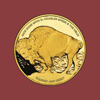 Conceived while Jack Rose was on tour with Dave Shuford's (of No-Neck Blues Band) D. Charles Speer project, Ragged and Right is easily the most rocking thing Rose ever recorded. The band spends much of their time toying with Shuford's country-rock sound, and though Jack's talent and unique signature are definitely present, he disappears into the music more often than he dominates it.
Conceived while Jack Rose was on tour with Dave Shuford's (of No-Neck Blues Band) D. Charles Speer project, Ragged and Right is easily the most rocking thing Rose ever recorded. The band spends much of their time toying with Shuford's country-rock sound, and though Jack's talent and unique signature are definitely present, he disappears into the music more often than he dominates it.
On first listen I was pretty disappointed with Ragged and Right. As much as I like rock 'n' roll inspired by Dylan or The Band, I was expecting something different from an album with Jack Rose's name on it. Of the four songs on the album, only "Linden Avenue Stomp" has the Takoma-style finger-picking goodness I associate with his name, and that's a Glenn Jones number originally performed with Jack on This Is the Wind That Blows It Out. Repeated listens eased that disappointment, however, and with time I've come to enjoy hearing Jack in a different setting. As far as reference points go, Bob Dylan might be the easiest reference to make here, as each of the four songs exhibit the kind of rollicking, rambling rock he popularized on Bringing It All Back Home or Highway 61 Revisted. But, Thrill Jockey's website mentions that Link Wray was the initial inspiration for this collaboration. And upon hearing his version of "In the Pines" it's obvious that D. Charles Speer and Jack took a lot away from Wray's rawer, genuinely drunken sound. Just listen to the sample of that song below and compare it with Wray's version here (titled "Georgia Pines").
The single opens unexpectedly, with the sound of a piano. A mandolin and slide guitar quickly harmonize with it before Shuford's deep, throaty tenor glides into the music. Lyrically, "Prison Song" is exactly the kind of song to be expected from Johnny Cash or Merle Haggard. It's all about growing up hard and ending up in the wrong place, and it's opening lines recall very strongly the chorus to Haggard's famous "Mama Tried." Musically, the band is relaxed, trotting out the song's melody at a casual pace and playing off the rhythm section's rubbery foundation. It's as near a country ballad as Rose ever got, and unsurprisingly it's hard to pick his contributions out from everyone else's. It isn't until "Linden Avenue Stomp" begins that I hear Rose's influence. Once it's over, D. Charles Speer & The Helix take right back over, churning out two action-packed, attitude-driven tunes, the last of which is the spiritual brother to Wray's version of "In the Pines." It was the lack of Rose's voice that first invited my disappointment, and it's hard not to feel a little miffed that this is billed as a Jack Rose record with D. Charles Speer & The Helix. The billing should definitely be reversed, but once I realized that Jack's Takoma-influenced guitar playing didn't fit on any song other than "Linden Avenue Stomp" I appreciated the EP a whole lot more. If Rose is invisible, it's because the music demands it and because he plays so well with Dave Shuford and his superb band, who are equally the stars of this show.
samples:
 
Read More

